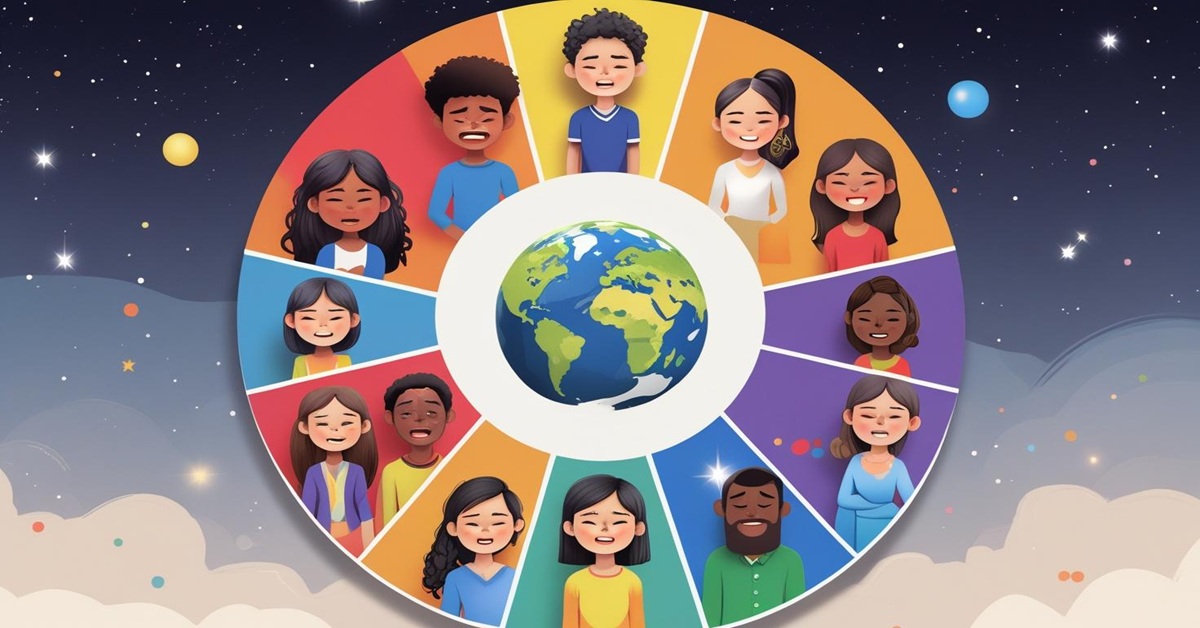What emotion influences the way you perceive the world?
Emotions play a key role in our lives, often defining our human experience. Take a moment to try this free quiz and see which emotion has the greatest influence on how you view the world and communicate your feelings.
Which Emotion Best Represents You?
About This Human Emotion Test
his test is intended to help you identify which of the four primary human emotions most influences you.
While emotions and how we experience them can change over time, this test doesn’t reflect your current mood. Each answer aligns with one of the four core emotions.
Everything You Should Know About Human Emotions
Our emotions significantly impact how we feel, how we perceive events, the choices we make, and how we relate to those around us. Throughout history, psychologists and researchers have engaged in lively debates about the definition of emotions and the number of distinct emotional states that exist.
In the 1970s, psychologist Paul Ekman proposed that all humans experience six basic emotions: happiness, sadness, disgust, fear, surprise, and anger.
Another psychologist, Robert Plutchik, created what we now call the Wheel of Emotions, or the feelings wheel. His theory indicated that basic emotions can be mixed together to form more complex emotional states. For example, when you blend disgust with anger, you get contempt. The wheel effectively illustrates core emotions and how they can branch out or merge into new ones.
A 2017 study published in the Proceedings of the National Academy of Sciences identified 27 distinct basic emotions.
Meanwhile, a 2019 study in Frontiers in Psychology proposed four core emotions and explored how these can evolve into more nuanced emotional experiences
4 Types of Human Emotions
Happiness, sadness, fear, and anger are the four fundamental emotions that all humans experience. They lay the groundwork for the vast array of emotional states we encounter. Plutchik’s Wheel of Emotions illustrates these essential feelings, plus several others that evolve from them.
Happiness
Happiness is widely regarded as the most pleasurable of the four basic emotions, and it’s the one we tend to seek out the most. It’s associated with feelings of joy and a general sense of well-being.
While it’s a fundamental emotion, happiness can be quite nuanced. What makes one person happy might not resonate the same way with someone else. We often convince ourselves that certain things or situations will lead to happiness, but that’s not always the reality.
Studies have shown that happiness is linked to improved health and may even contribute to a longer lifespan. Still, if we only express happiness while pushing other emotions aside, it might indicate that we’re avoiding deeper feelings or unresolved issues.
Sadness
Sadness can either be a short-lived feeling that varies in intensity or a more enduring emotion. For instance, if someone is going through a major depressive episode, persistent sadness is usually one of the main indicators. It often connects to feelings of grief, hopelessness, or a disinterest in activities.
The way sadness is experienced and expressed can differ from one individual to another, depending on its underlying cause. A sudden event might lead to tears, while ongoing sadness may reveal itself through signs that are commonly linked to depression..
Fear
Fear is a completely natural emotion that has developed over time to help us stay alive. It kicks in strongly when we sense a threat, triggering our fight-or-flight response, which pushes us to react swiftly and get away from danger—something that was crucial for our hunter-gatherer ancestors.
On a physical level, fear can lead to muscle tightness, a racing heart, and a flurry of thoughts.
In our modern lives, fear often gets mixed up with anxiety. But it’s important to note that fear is about reacting to a current threat, while anxiety usually involves worrying about something that might happen in the future.
Anger
Anger is a strong emotion frequently associated with feelings of hostility, rage, and frustration. It can arise from a real or imagined injury, or from the belief that something unfair has happened.
While anger can sometimes lead to aggressive behavior aimed at causing harm, it doesn’t always have to be destructive. In fact, it can serve a positive purpose by driving us to eliminate harmful or unpleasant elements from our lives. However, when anger becomes too intense or hard to manage, it can damage relationships, disrupt our daily lives, and pose risks to others.
Like happiness, anger also affects our health. Research suggests it may contribute to chronic conditions such as heart disease and diabetes.
Read More:









